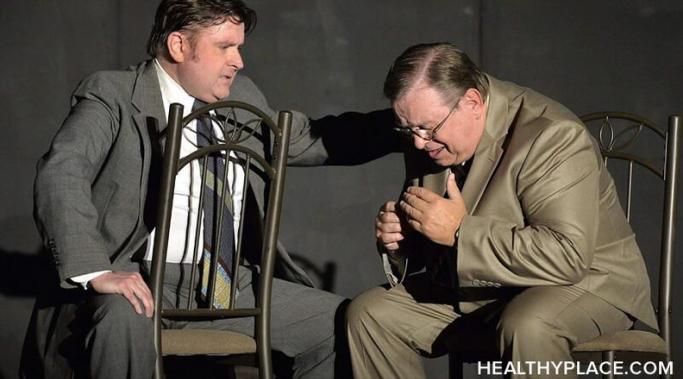Blogs
My daughter just graduated from a year of shock therapy for major depressive disorder (electroconvulsive therapy [ECT]). It gave her life back. Her severe major depressive disorder had stopped her from functioning in life and kept the threat of suicide lingering over her like a vulture waiting to pounce. Yet, today, a year after beginning shock therapy, she has finished her college program, gotten a job and is socializing and taking care of herself with a kind of sparkle that had once seemed impossible. Shock therapy for my daughter's major depressive disorder created a miracle for her.
Functioning and bipolar disorder is a constant struggle. I know this is true not just for me, but for so many with serious mental illness. And part of the oddity of my functioning with bipolar disorder is that if I stop functioning, being productive, I just won’t start again.
My name is Mary-Elizabeth Schurrer (but for convenience sake, call me Mary-Beth). I’m honored to join HealthyPlace’s Surviving ED blog. I hope we can engage in honest, authentic and meaningful conversations about the triumphs and struggles of eating disorder recovery. But first, here’s some background on my own path to healing from anorexia nervosa.
There are many difficulties with my mental illness. If you’ve been reading Creative Schizophrenia regularly, then you most likely know I have a wonderful husband named Tom who is very supportive in my journey with schizoaffective disorder. He is so supportive that he makes me feel it is our journey with my schizoaffective disorder. So when one of my readers asked me what the biggest difficulty with my mental illness was for him to deal with, his answer surprised me.
After my dissociative identity disorder (DID) diagnosis, I had to accept that it doesn't go away. There's no medication to cure it and no therapy that works 100% of the time. DID is manageable with treatment, but even then, the DID diagnosis stays with you. It has been two years since my DID diagnosis, and I am still struggling. But does DID get easier as time passes?
Do you expect yourself to be Superman or Superwoman, a person with powers so great that you can do it all with no side effects like anxiety? If you are, you’re not alone. This pressure to do it all, be everyone to everything, is common enough to have terms attached to them: Superman complex or the Superwoman syndrome. Feeling pressured to live your life in a superhuman way can and does contribute to anxiety. You can use your very human powers to fight the Superwoman syndrome or Superman complex and decrease anxiety.
Everyone gets overwhelmed. We all have times when life is stressful or we’ve signed up for--or been given--more than we can easily handle. For those of us with anxiety, however, feeling overwhelmed can quickly transform into outright terror. But you can battle the anxiety that comes from feeling overwhelmed with these stress relief tips.
My lack of emotional maturity during my active addiction caused me to stuff down my feelings. Thinking, “I have to feel my feelings?” caused me great fear when I started sobriety. Whenever I started working through a 12-step program, dealing with emotions felt like opening a closet door with a big, scary monster inside of it. The scary monster was all the feelings I’d stuffed in there, during the decade I used. I was emotionally immature and didn’t have tools to handle the ups and downs of life. Getting drunk or high was my response to every feeling. For example, if you made me angry, I would get "drunk at you" for revenge. It really was as silly and self-destructive as it sounds. I was so scared of that monster, my emotions in the closest, that I’d rather self-destruct than face them.
What happens when someone with posttraumatic stress disorder (PTSD) is traumatized again? It's a question that has been on my mind a lot lately. So many scary and potentially traumatic or anxiety-provoking natural phenomena are taking place in the world right now. Whether we're talking the hurricanes in the Southern United States, the West Coast wildfires that caused ash to rain over my city for a day and a half, or the fatal floods in Southeast Asia, the world has watched a lot of unpredictable events unfold. Statistically speaking, some of the people affected by these natural disasters must already have PTSD.1 Are those people with PTSD being traumatized again?
It's important to show empathy to yourself and others in eating disorder recovery. It’s vital for our loved ones to be able to show empathy for us as we journey towards recovery. It’s also vital to be able to show empathy for ourselves because empathy will help to keep us in eating disorder recovery. Here’s how to show empathy to yourself and others in eating disorder recovery.









